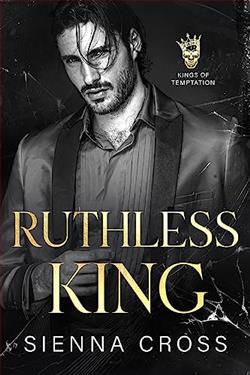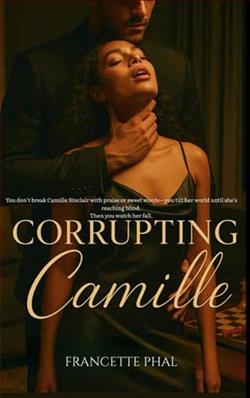Page 130 of Hometown Girl
She stood and faced him.
The ten-year-old boy in the fishing photo popped into her mind. Anger rose within her. Why hadn’t anyone done a better job making sure he was okay? If they had, maybe he’d be able to talk about it now. Instead, he stood there, the truth trapped inside him.
She didn’t know how to let him go. She didn’t know how to give him the space she’d promised. Not when she wanted to know everything about him.
“You gave me something,” she said, “and I don’t even know if you realize it.”
His eyes held hers, unmoving.
“A safe place. I didn’t even know I needed it. I was so ashamed of everything that happened at work, but the day I told you, it was like it lost its hold on me. I realized life isn’t about how much I’ve accomplished or what I’ve done. It’s about who I’ve loved and how well I’ve loved them.”
He didn’t say anything, but then, that didn’t surprise her.
“Do you know how hard it is to love someone who doesn’t let you in?” Tears returned to her eyes, but she forced herself to keep going. She moved over to him, reached up and touched his face. “It’s safe here.”
Finally, he looked at her, and in that moment, she saw the fear that tormented him. The pain of a past that wouldn’t go away. For years, he’d lived with the memory of something that he’d likely had no control over, something he probably blamed himself for, and it had held him hostage—a spectator in his own life.
“You’ve got to let this go.”
Drew closed his eyes, as if wrestling again with a demon that had him by the throat. He started to speak but quickly closed his mouth.
Beth could see it now—he wasn’t unwilling to open up, he was unable. Had he ever talked about that day to anyone?
He inched away from her, again just out of reach. Turning in a circle, he raked his hands through his hair, then put the ball cap back on his head. He glanced at the side door of the house—the nearest escape—but stopped before going in.
“If you leave, what happens to us?”
The question took her off guard. How should she respond? He’d told her she didn’t have another choice but to sell—he had to know she’d get another job. And yet, from where he stood, it probably looked like she was walking away.
Leaving him with the exact opposite of a safe place.
How could she expect him to do anything but run?
He didn’t give her a chance to respond. The sound of the slamming screen door punctuated the end of their conversation.
Drew stormed through the house, out the front door and back out to the barn, stepping over debris that made the farm look worse than it had the day he’d arrived.
Anger stuck to his thoughts like static cling.
Why was this so hard to talk about? He wanted to tell her everything, but every time he started to, something stopped him.
A thick barrier of shame.
He moved toward the tree that had sliced through the roof, and started hauling the mess away. Each downed branch gave him something else to throw. He cut through the larger sections with a chainsaw and hauled them out to the burn pile. He swept shattered glass into a dustpan and threw it in the garbage.
He worked angry.
Beth was right. He had to let this go. It was killing him—yet he didn’t have the right to wish for a peaceful life.
Not until he found peace for Jess.
He picked up a fallen table and slammed it back where it belonged. He did the same with the other tables, then the chairs.
His pulse raced, and his face heated. He wanted to punch something. Hard.
Drew picked up an old wooden chair and threw it against the wall. The chair fell in pieces onto the ground. He picked up another one and did the same thing.
Jess’s laugh echoed in the emptiness of the barn. Seconds later, the buoyant melody of “Sh-Boom,” the song he’d heard earlier, filled his thoughts. He tried to shake them away, but scenes from his nightmare played out in front of him.















